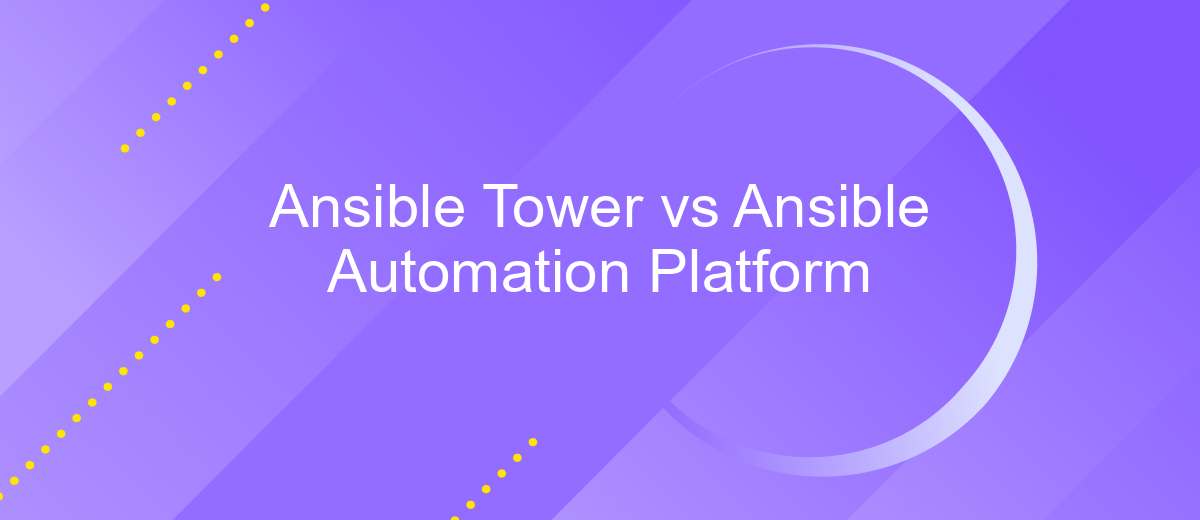Ansible Tower vs Ansible Automation Platform
In the rapidly evolving landscape of IT automation, choosing the right tools is crucial for efficiency and scalability. This article delves into the key differences and similarities between Ansible Tower and Ansible Automation Platform, two powerful solutions from Red Hat. By understanding their unique features and use cases, organizations can make informed decisions to optimize their automation strategies.
Introduction
Ansible Tower and Ansible Automation Platform are two pivotal tools for managing IT automation at scale. While both originate from the Ansible ecosystem, they serve different purposes and offer distinct features. Understanding these differences can help organizations choose the right tool for their specific needs, ensuring efficient and reliable automation processes.
- Ansible Tower: A web-based solution that provides a user-friendly interface for managing Ansible playbooks, inventories, and schedules.
- Ansible Automation Platform: A comprehensive suite that includes Ansible Tower along with additional tools and features for end-to-end automation.
Choosing between Ansible Tower and Ansible Automation Platform depends on various factors such as the scale of automation, specific use cases, and organizational requirements. This article delves into the key differences, advantages, and use cases of both tools to help you make an informed decision.
Comparison of Features

Ansible Tower and Ansible Automation Platform both offer robust solutions for automation, but they cater to different needs. Ansible Tower provides a web-based interface and REST API, allowing teams to manage configurations, deployments, and orchestrations more efficiently. It focuses on simplifying complex tasks and offers role-based access control, job scheduling, and real-time job status updates. On the other hand, Ansible Automation Platform extends these capabilities by integrating additional tools and services, such as content collections and automation analytics, making it a more comprehensive solution for enterprise-level automation.
Another significant difference lies in their integration capabilities. While Ansible Tower supports various integrations, Ansible Automation Platform enhances this with more advanced features and integrations, including ApiX-Drive. ApiX-Drive facilitates seamless integration with multiple third-party applications, streamlining workflows and reducing manual intervention. This makes Ansible Automation Platform a more versatile choice for organizations looking to automate complex, multi-step processes across different systems and services.
Licensing and Pricing

When comparing Ansible Tower and Ansible Automation Platform, understanding the licensing and pricing is essential for making an informed decision. Both solutions offer robust automation capabilities, but their cost structures can significantly influence your choice.
- Ansible Tower: Ansible Tower operates on a subscription-based model. Pricing is typically based on the number of nodes managed. It offers different tiers, including Standard and Premium, each with varying levels of support and features.
- Ansible Automation Platform: This platform includes Ansible Tower as part of a broader suite of automation tools. It also follows a subscription model but provides a more comprehensive package. Pricing is influenced by the number of managed nodes and the specific components of the platform you choose to utilize.
Ultimately, your choice between Ansible Tower and Ansible Automation Platform will depend on your organization's specific needs and budget. Evaluating the total cost of ownership, including potential scalability and support requirements, will help you determine the best fit for your automation goals.
Use Cases

Ansible Tower and Ansible Automation Platform cater to different use cases within IT automation. Ansible Tower primarily serves as an enterprise-level control system for managing and scaling Ansible deployments. It offers a user-friendly web interface, role-based access control, and powerful job scheduling capabilities.
On the other hand, Ansible Automation Platform provides a more comprehensive suite of tools and services. It integrates with various automation technologies and offers advanced analytics, content collections, and certified content from Red Hat and its partners. This makes it suitable for organizations looking for an all-encompassing automation solution.
- Centralized management and monitoring of Ansible playbooks
- Role-based access control and team collaboration
- Scalable job scheduling and execution
- Integration with other automation tools and services
- Enhanced analytics and reporting capabilities
Both tools are valuable for automating IT tasks, but their use cases differ based on the complexity and scale of the automation needs. While Ansible Tower is ideal for managing Ansible deployments, Ansible Automation Platform offers a broader range of functionalities for comprehensive automation strategies.
Conclusion
In conclusion, both Ansible Tower and Ansible Automation Platform offer robust solutions for automating IT tasks and orchestrating complex workflows. Ansible Tower provides a user-friendly interface and powerful tools for managing Ansible playbooks, inventories, and scheduling, making it an excellent choice for teams looking to streamline their automation processes. On the other hand, the Ansible Automation Platform extends these capabilities with additional features such as automation services catalog, analytics, and more extensive integrations, catering to organizations that require a more comprehensive automation strategy.
When considering which solution to implement, it's essential to evaluate your organization's specific needs and the complexity of your IT environment. For teams needing advanced integrations and workflow automation, leveraging services like ApiX-Drive can significantly enhance the capabilities of either platform by simplifying the integration of various applications and services. Ultimately, both Ansible Tower and Ansible Automation Platform can significantly improve efficiency and consistency in IT operations, but the choice will depend on the scale and scope of your automation requirements.
FAQ
What is the primary difference between Ansible Tower and Ansible Automation Platform?
Do I need Ansible Tower if I already use Ansible?
Can Ansible Tower be integrated with other tools and services?
Is Ansible Automation Platform suitable for large-scale enterprise environments?
What kind of support and documentation is available for users of Ansible Automation Platform?
Time is the most valuable resource in today's business realities. By eliminating the routine from work processes, you will get more opportunities to implement the most daring plans and ideas. Choose – you can continue to waste time, money and nerves on inefficient solutions, or you can use ApiX-Drive, automating work processes and achieving results with minimal investment of money, effort and human resources.

